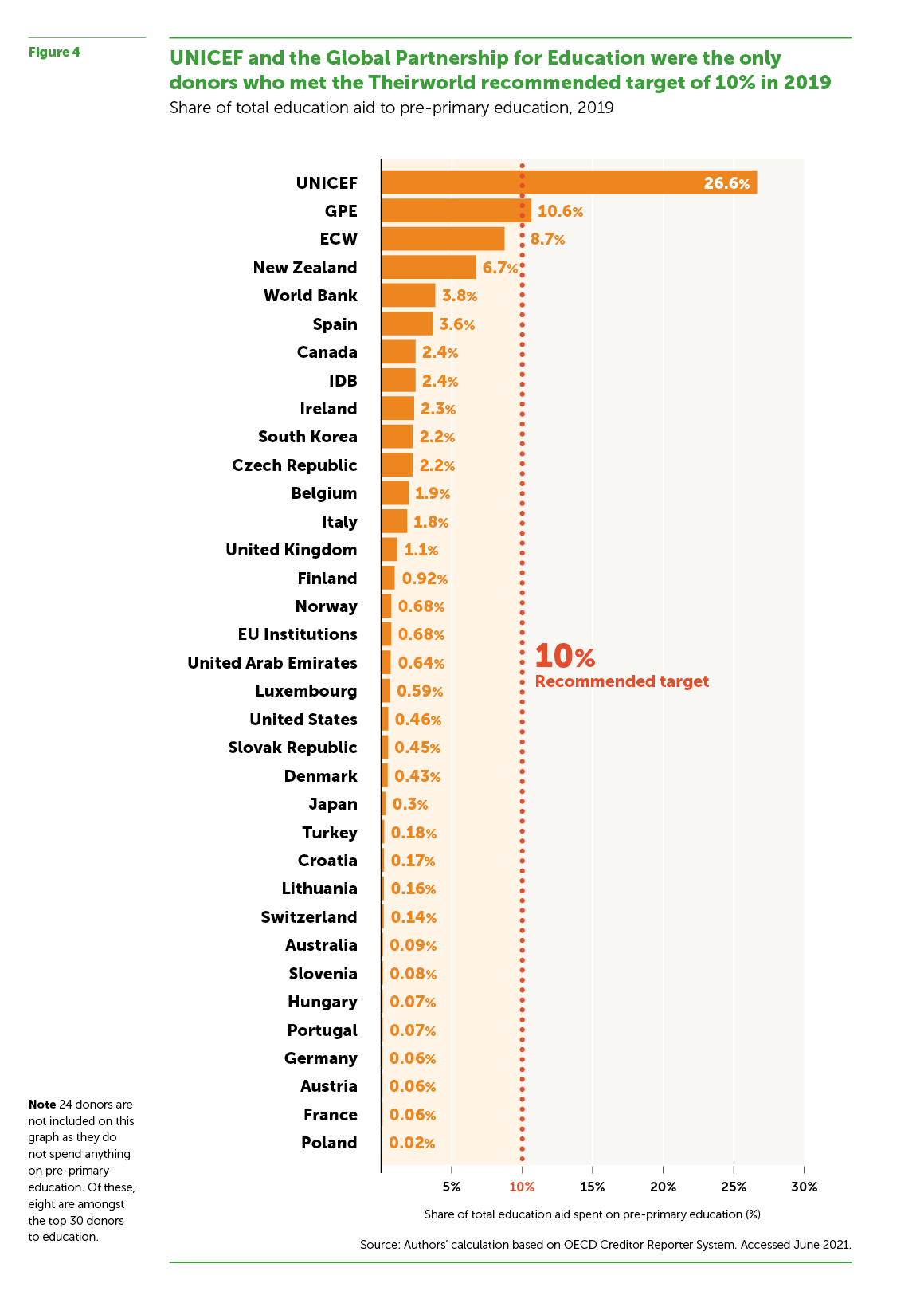
Spending on pre-primary education accounts for less than 1 per cent of the international community’s aid to education - equivalent to just 34 cents per child, per year - according to analysis by Cambridge University academics for global children’s charity Theirworld.
Research shows that pre-primary education is crucial to a child’s development and children who miss out on early years learning fall behind even before they start primary school. Children enrolled in at least one year of pre-primary education are more likely to develop critical skills and are less likely to drop out of school.
Despite this, spending on pre-primary education remains consistently low, with donors on average committing 37 times more to post-secondary education, the analysis shows. Eight of the world’s top 30 donors to education give nothing to pre-primary education, including the Netherlands, Sweden, Qatar and Saudi Arabia [see graph].

The charity is calling for donor countries to meet a 10 per cent target of their education aid budget for pre-primary education, which it believes would benefit 6.4 million children a year in low-income countries.
The report, ‘A Better Start? A Progress Check on Donor Funding for Pre-primary Education and Early Childhood Development’ analyses data submitted by international donors to the OECD’s Development Assistance Committee Creditor Reporting System. The most recent figures are from 2019 so reflect investment before the Covid-19 pandemic.
The US, France, Denmark and Germany are among the 16 countries that commit less than 0.5 per cent of their education aid budget to pre-primary education. The UK devotes 1.1 per cent, closely behind Italy (1.8 per cent), Belgium (1.9 per cent), the Czech Republic and South Korea (2.2 per cent).
Professor Pauline Rose, director of the Research for Equitable Access and Learning (REAL) Centre, University of Cambridge, and one of the report’s authors, said international donors ‘need to wake up’.
‘The first five years of a child’s life are among the most critical for their long-term development and the benefits of investing in pre-primary education are found to be the greatest for the most disadvantaged,’ she said.
‘It is nothing short of a tragedy that world leaders are failing to prioritise spending in this area. The international community must wake up and step up. Without urgent action, the risk is that some of the world’s poorest and most marginalised will continue to fall behind.’
Chair of Theirworld Sarah Brown, said, ‘Covid-19 has exacerbated the global education crisis and pushed the world’s poorest children further to the margins. We cannot let this continue.
‘Over the next 12 months, world leaders have a series of opportunities at high level meetings, where global stimulus plans will be developed, to show their commitment to the provision of quality pre-primary education.’
Further information









